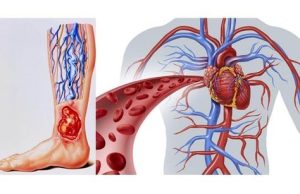- 29 February 2024
- 158
Why Are My Arms and Legs Tingling? Let’s Break It Down

Understanding the Sensation of Tingling
Tingling sensations in the arms and legs can be unsettling, often causing individuals to wonder about the underlying causes. This article aims to delve into the various factors that may contribute to this sensation, providing insights into possible reasons behind tingling extremities and offering guidance on when to seek medical attention. All you Need to Know About Other Health Issues And Their Solutions (Natural Remedies For Constipation Relief)
What Causes Tingling Sensations?
1. Nerve Compression or Damage
One common reason for tingling in the arms and legs is nerve compression or damage. This can occur due to a variety of factors such as:
- Poor Posture: Prolonged periods of sitting or standing in awkward positions can compress nerves, leading to tingling sensations.
- Injury: Trauma to the nerves, such as fractures or dislocations, can result in tingling or numbness.
- Repetitive Motion: Activities that involve repetitive motions, such as typing or playing musical instruments, may lead to nerve compression over time.
2. Circulation Issues
Inadequate blood flow to the extremities can also cause tingling sensations. Conditions that affect circulation include:
- Peripheral Artery Disease (PAD): Narrowing of the arteries in the legs due to plaque buildup can restrict blood flow, leading to tingling or numbness.
- Raynaud’s Disease: This condition causes blood vessels to narrow in response to cold or stress, resulting in reduced blood flow to the fingers and toes and triggering tingling sensations.
3. Nerve Disorders
Certain nerve disorders can manifest as tingling in the arms and legs. These may include:
- Peripheral Neuropathy: Damage to the peripheral nerves, often due to diabetes, autoimmune diseases, or infections, can cause tingling, burning, or numbness.
- Multiple Sclerosis (MS): MS is a neurological condition where the immune system attacks the protective covering of nerves, leading to disruptions in nerve signaling and tingling sensations.

When to Seek Medical Attention
While occasional tingling may be benign, persistent or severe symptoms warrant medical evaluation. It is advisable to consult a healthcare professional if:
- Tingling is accompanied by weakness, loss of coordination, or difficulty walking.
- Symptoms worsen or interfere with daily activities.
- Tingling is accompanied by other concerning symptoms such as chest pain or difficulty breathing.
Treatment and Management
The approach to managing tingling sensations depends on the underlying cause. Treatment options may include:
- Physical Therapy: Exercises to improve posture and strengthen muscles can help alleviate nerve compression.
- Medications: Pain relievers, anti-inflammatory drugs, or medications to control underlying conditions such as diabetes or autoimmune diseases may be prescribed.
- Lifestyle Modifications: Adopting ergonomic practices, maintaining a healthy weight, and managing underlying health conditions can help prevent or reduce tingling sensations.

Causes of Tingling Sensations
| Causes | Description |
|---|---|
| Nerve Compression or Damage | Compression or injury to nerves due to poor posture, trauma, or repetitive motion can lead to tingling sensations in the arms and legs. |
| Circulation Issues | Conditions like peripheral artery disease (PAD) or Raynaud’s disease can cause reduced blood flow to the extremities, resulting in tingling or numbness. |
| Nerve Disorders | Disorders such as peripheral neuropathy or multiple sclerosis (MS) affect nerve function, leading to tingling, burning, or numbness in the arms and legs. |
Conclusion
Tingling sensations in the arms and legs can stem from a variety of causes, ranging from nerve compression to circulation issues and underlying health conditions. While occasional tingling may be benign, persistent or severe symptoms warrant medical evaluation to identify and address any underlying concerns. By understanding the potential causes and seeking appropriate medical attention, individuals can effectively manage tingling sensations and maintain optimal nerve health.

